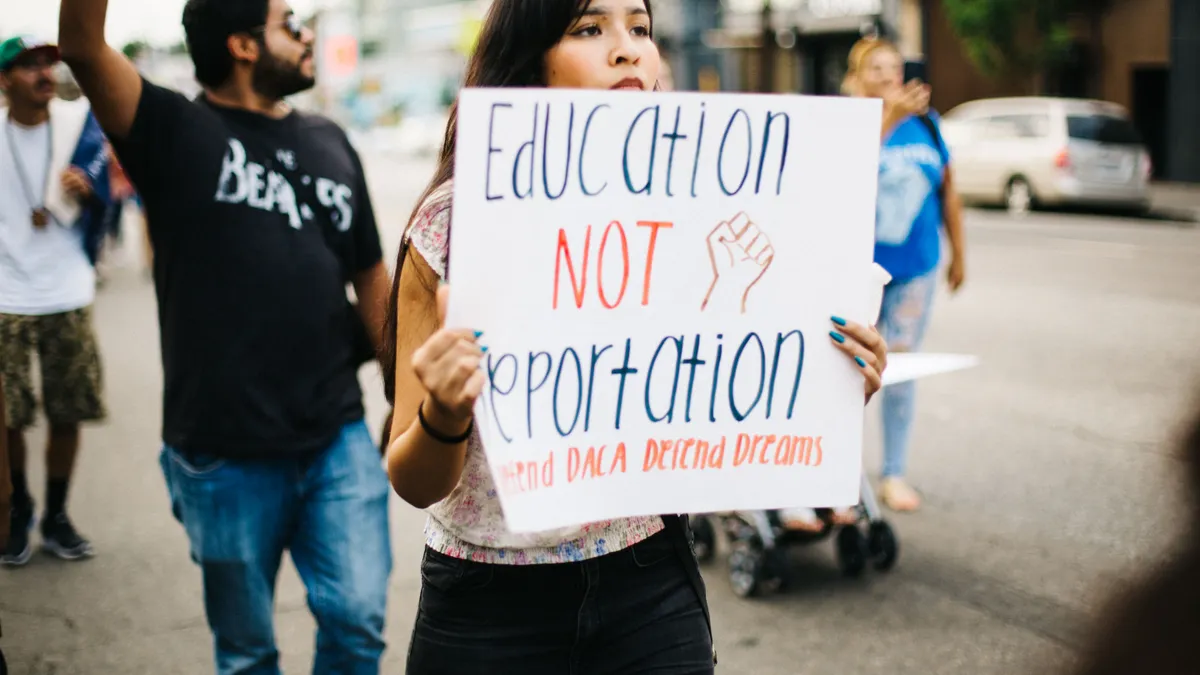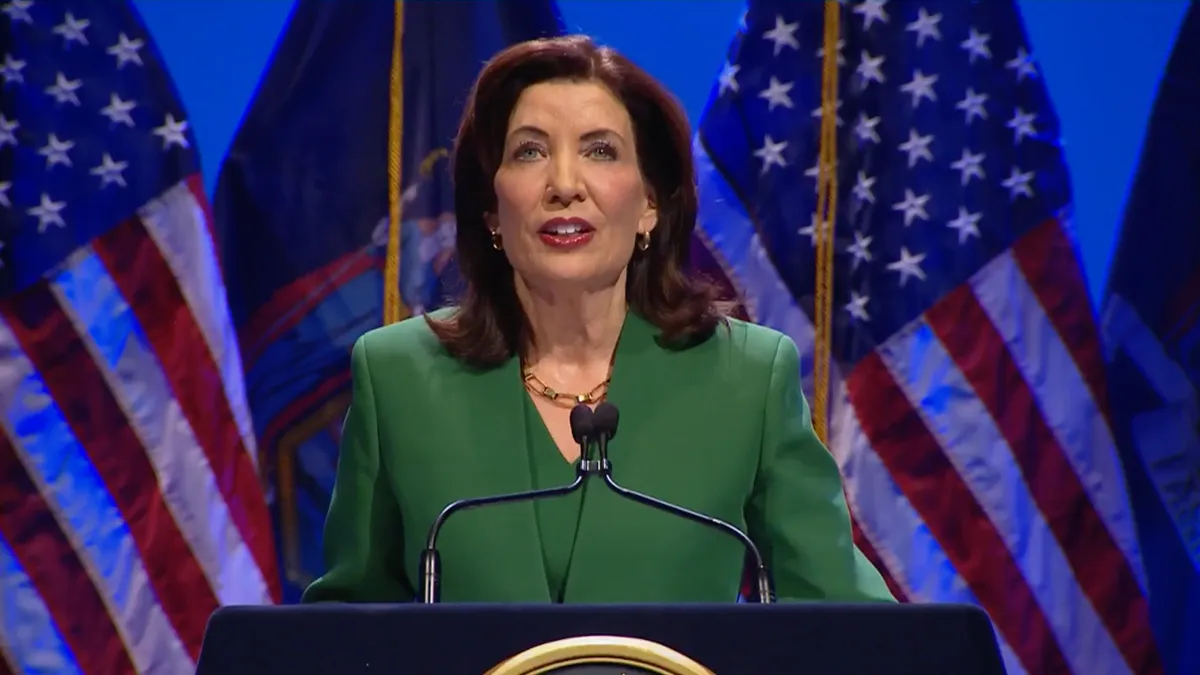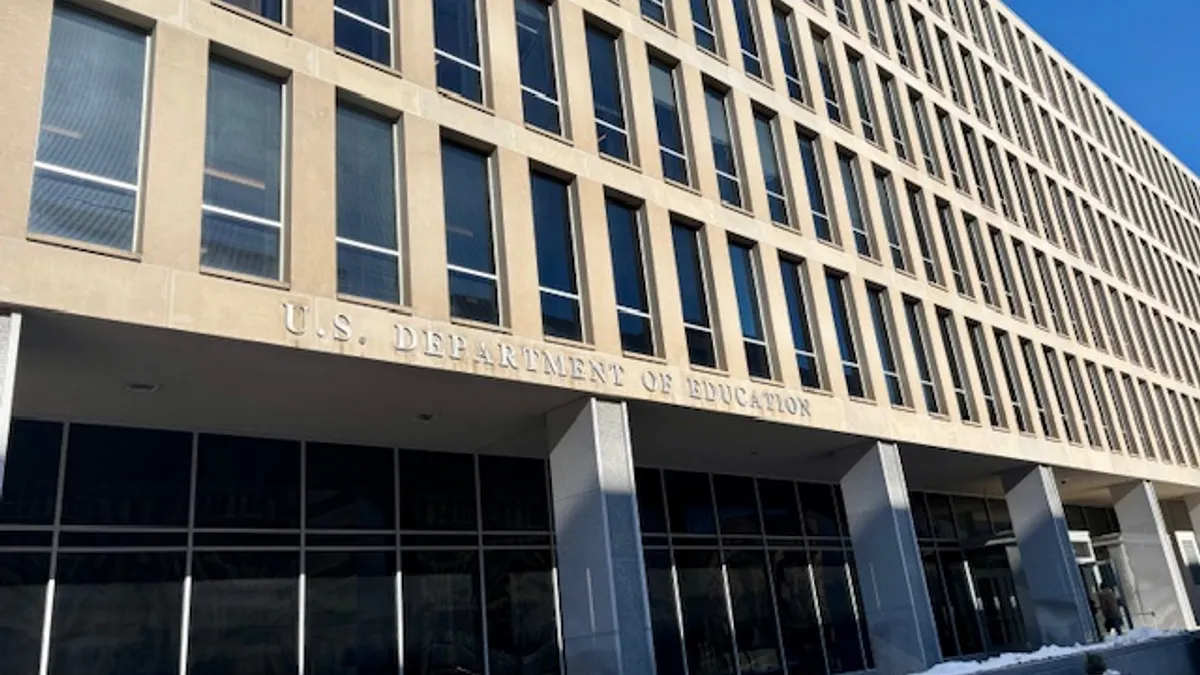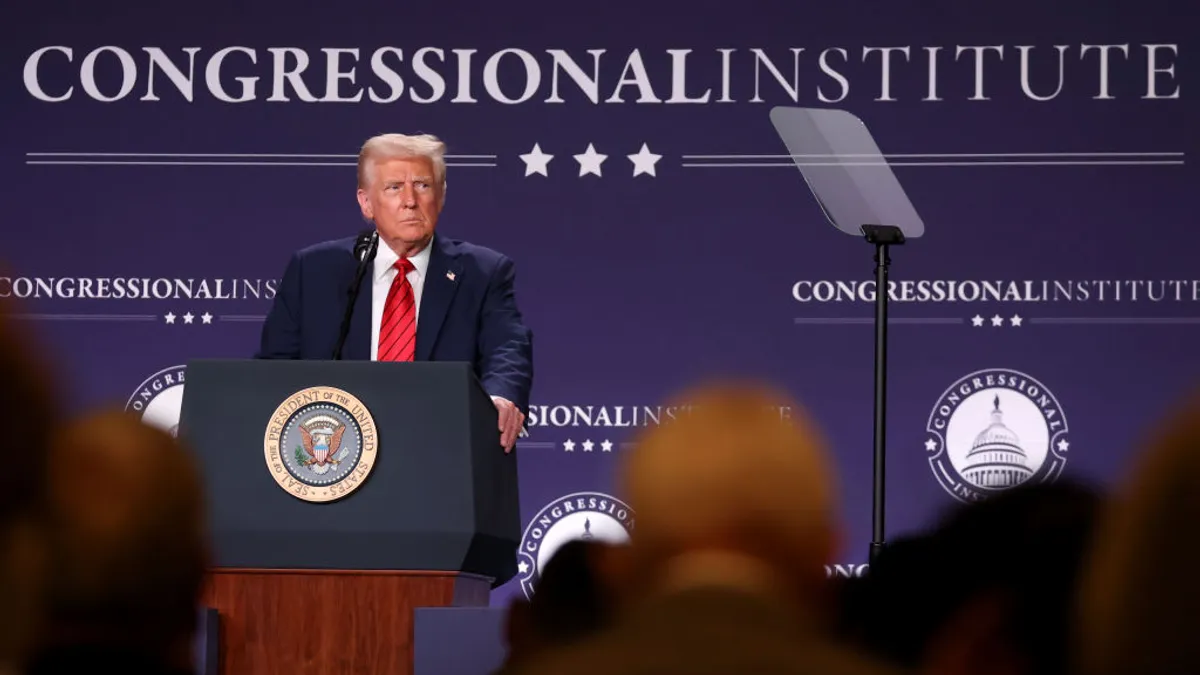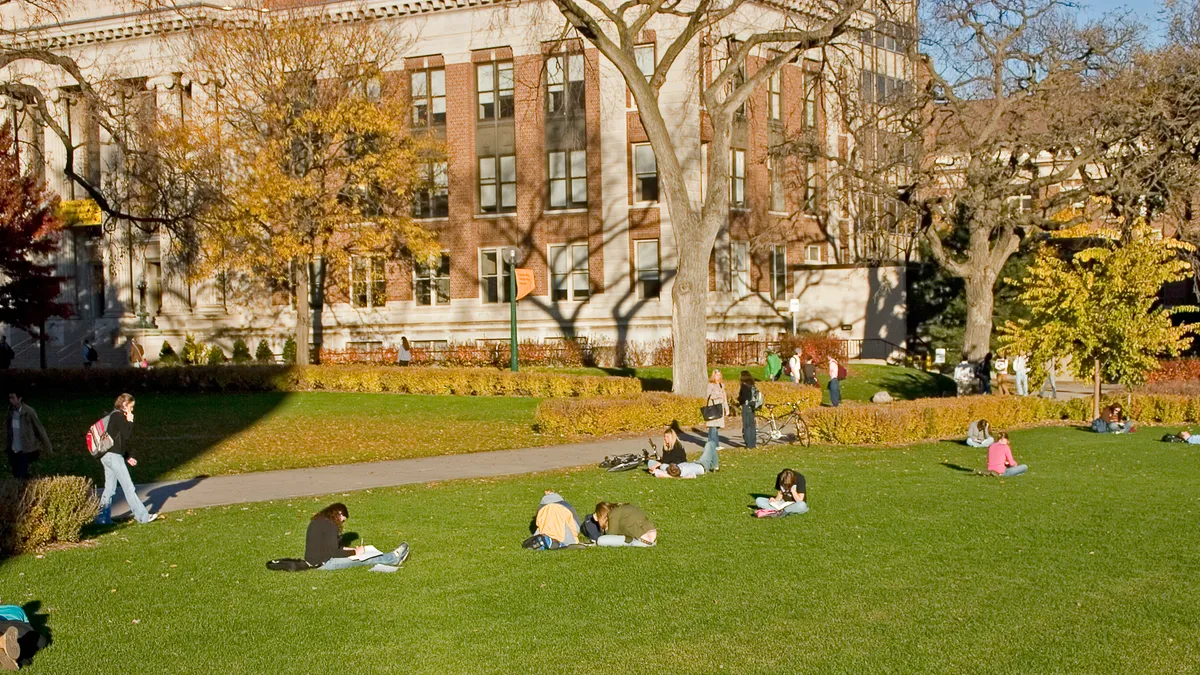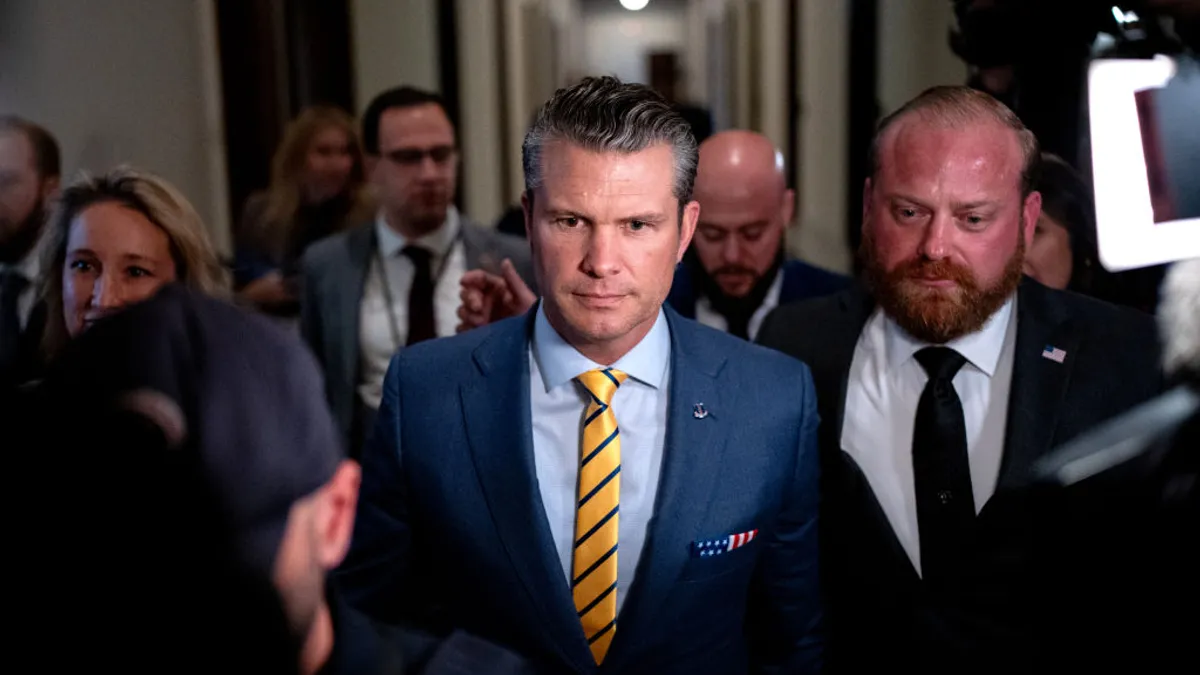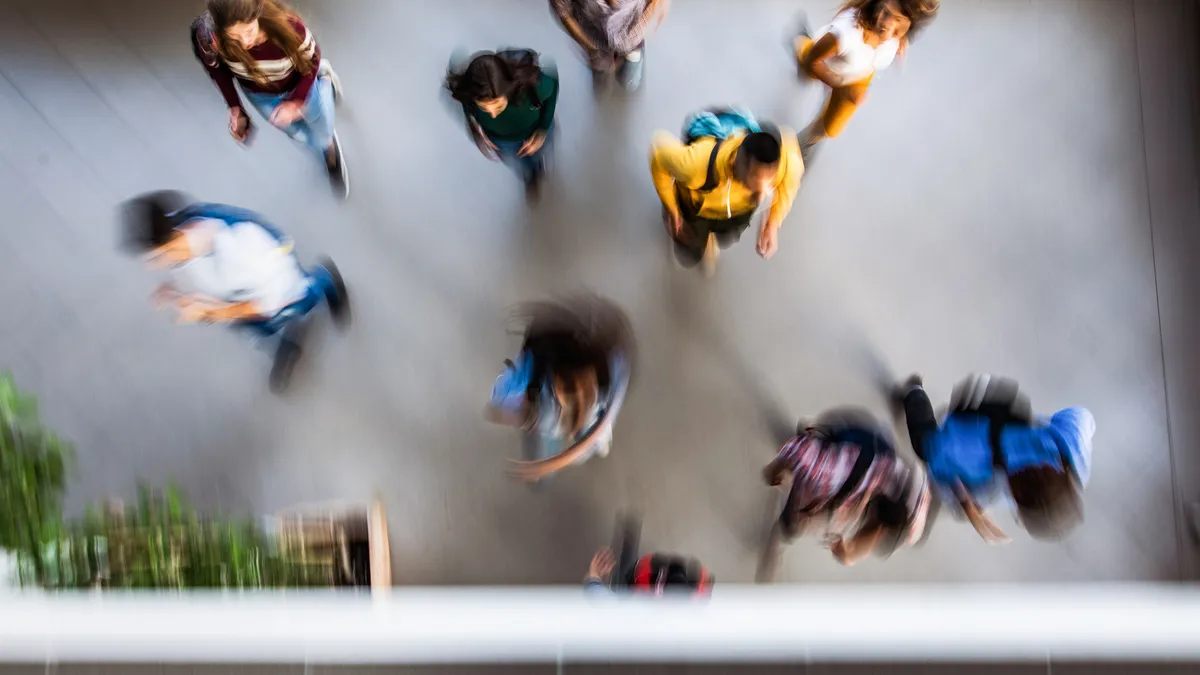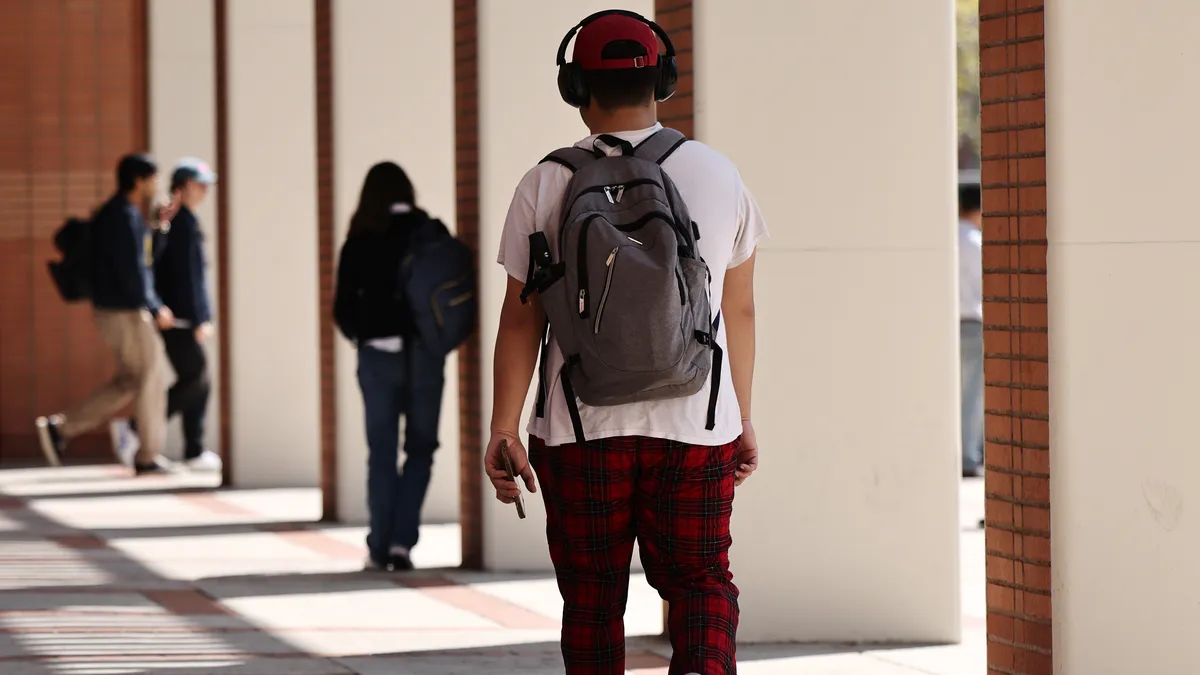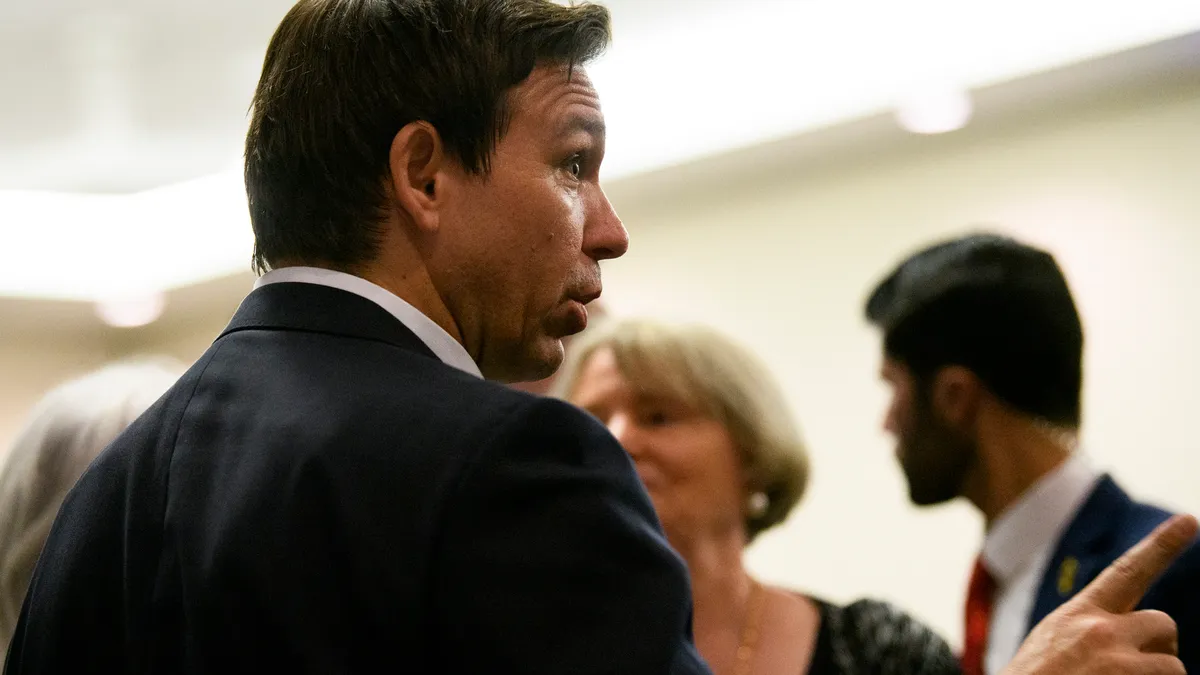Dozens of colleges and universities have started offering services tailored to the needs of undocumented students since the Obama administration made it easier for them to go to college in the U.S. and get jobs under the Deferred Action for Childhood Arrivals (DACA) program.
But the Trump administration's recent use of raids and other tactics to target undocumented immigrants — and the threat of more to come — has forced administrators to rethink the services they offer and how they offer them.
Raids by U.S. Immigration and Customs Enforcement (ICE) on college campuses are rare, but workplace crackdowns and deportation proceedings can still have a big impact on colleges and their students.
With President Donald Trump calling for more aggressive enforcement of immigration laws, colleges face considerations such as whether to let ICE or the Border Patrol participate in campus job fairs, how to support students whose family members are detained by immigration agents, and how to provide legal aid and mental health counseling to affected students.
Colleges and universities will likely take a more active role in supporting undocumented students, said Jesus Cisneros, an education professor at the University of Texas at El Paso who has studied university resource centers for these students. Between 200,000 and 225,000 undocumented students are enrolled in college, according to a 2014 estimate from the Pew Research Center. And at least 56 colleges or universities had established a support center for them as of May 2018, he said.
That number has been growing. "Administrators are beginning to recognize that inclusion in higher education does not and should not end at access," he said. "Institutions are identifying ways in which they can support the students that they recruit … all the way through graduation and even post-graduation."
'There's always an answer'
Elsa Núñez, the president of Eastern Connecticut State University, said her school has tried to get the message out to undocumented students that they shouldn't leave campus immediately if they find out a family member has been detained for deportation proceedings.
Instead, she urges students to work with their instructors to find a good time to return home, so they don't fall behind on their coursework. In return, the university helps students find the money for a roundtrip airline ticket, plus a little extra for incidental expenses like food. "Everyone that flew home flew back," she said.
Around 220 of Eastern Connecticut State's 6,500 students are enrolled in the DACA program and receive scholarships from the TheDream.US; the national organization helps undocumented students pay for college as they are ineligible for federal financial aid and loans.
Still, the DACA program is at risk. The Trump administration in 2017 cut off new participants from joining and wants to shut it down completely, an effort that is now under review by the U.S. Supreme Court.
Núñez tries to stress to undocumented students that, even if they have to leave the U.S., the university will let them complete their degrees online and help them find jobs in their new homes. "You've got to think ahead and offer them the psychological coaching that allows them to think past the negative decision," she said. "There's always an answer. Yes, it's bad, but it's not the end of their life. … Giving them hope is really important."
"You've got to think ahead and offer them the psychological coaching that allows them to think past the negative decision."

Elsa Núñez
President, Eastern Connecticut State University
Alex Delgadillo, who oversees services for the more than 600 undocumented students at the University of California, Merced, said that after Trump's election, undocumented students there asked for a safe space to gather on campus. "A lot of students were fearful," he said. "Am I safe on this campus? Will the university comply with ICE and will they help them track me down?"
At the campus level, UC Merced provided a few rooms furnished with couches, chairs and desks where undocumented students can gather to study or host events away from anti-immigrant rhetoric.
At the state level, California requires its public universities and private institutions that receive state funding to protect undocumented students from ICE enforcement actions.
A law passed in 2017 prohibits university employees from sharing information on students' immigration status, requires them to report to the administration if immigration agents will or have entered the campus, and mandates they verify the legality of warrants or subpoenas for immigration enforcement actions
Targeted support
Mental health services are another growing need for undocumented students, UTEP's Cisneros said.
"Many institutions have waiting lists just to see a mental health counselor, because [those services] are open to all of the university," he said. Resource centers specifically for undocumented students can help them get assistance more quickly and from counselors who are familiar with the issues they face, Cisneros said. "That kind of removes them from the waiting list."
But approaches vary. Some colleges staff undocumented student centers with counselors trained to address those students' unique mental health needs. Others, like the University of Utah, use social media to highlight specific university counselors who are well-versed in issues facing undocumented students, said Alonso Reyna Rivarola, the director of the university's Dream Center. Similarly, the center highlights off-campus resources for undocumented students who need legal aid.
"Even though our goal is for everyone to be trained, we know that there are some folks who have more experience working with this population than others," said Reyna Rivarola.


